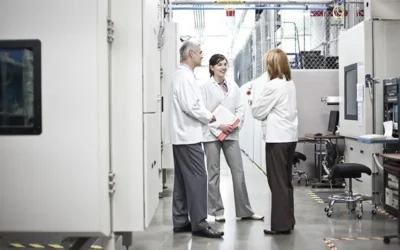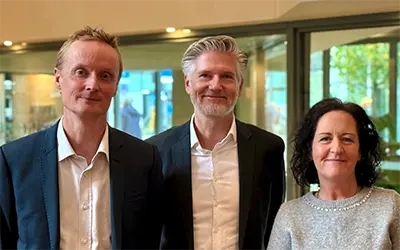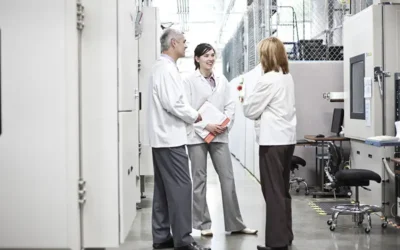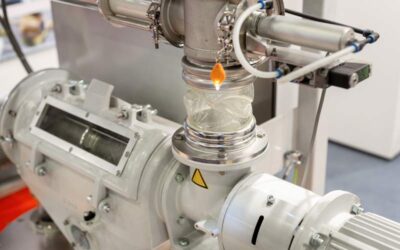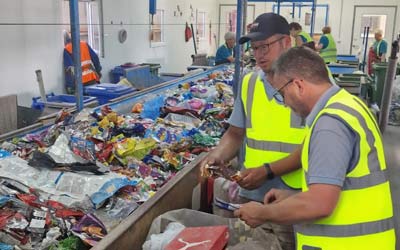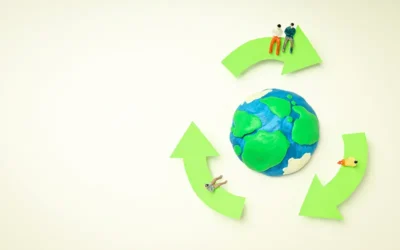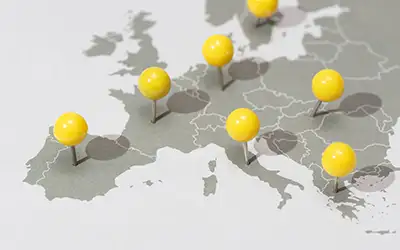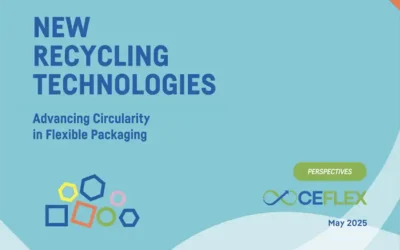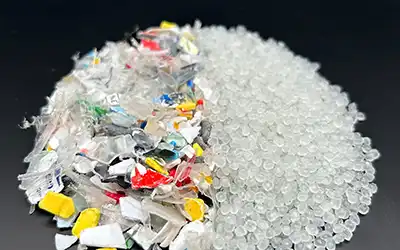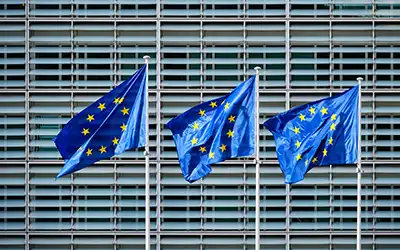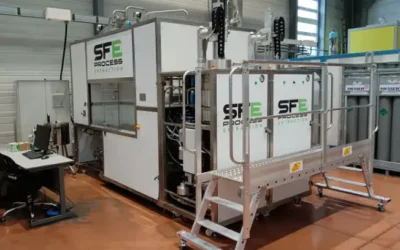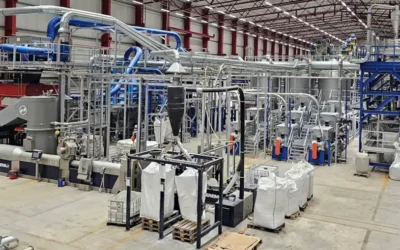CEFLEX News & Events
Raising the Bar Together: Insights from Two Years of Collective Testing on Flexible Packaging Sortability and Recyclability
Dennis Bankmann, an independent scientific consultant to CEFLEX, shares reflections from work that generated over 1,700 data points – now available as open-access resources, including NIR, eddy current, metal detection, size and shape, and mechanical recyclability data at guidelines.ceflex.eu
CEFLEX welcomes new Leadership Team to tackle Europe’s decisive 2025–2030 circularity drive
The Circular Economy for Flexible Packaging initiative (CEFLEX) is pleased to announce the appointment of a new Leadership Team – effective 1 January 2026 – to guide the initiative into its next phase, following the planned transition of Project Coordinator and Founder Graham Houlder towards retirement.
Better by Design: Isabelle Jenny on Packaging That Meets the Moment – and What’s Coming Next with Legislation
Interview with Isabelle Jenny, Sustainability Manager, Amcor and a key advisor to the ‘Phase 2’ testing project.
Bridging complexity and compliance: your tools to flexible packaging design
Interview with Jean-Paul Duquet, Sustainability Director, Flexible Packaging Europe (FPE) and a key advisor to the ‘Phase 2’ testing project.
Designing for 2030: navigating new practices and staying ahead of the curve
Interview with Nikola Juhasz, Global Technical Director, Sustainability at Sun Chemical: a key advisor to the ‘Phase 2’ testing project and participant looking at inks, adhesives, barriers and metallisation in detail.
Designing for 2030: navigating new practices and staying ahead of the curve
Interview with Adam Herriott, Senior Specialist at WRAP, a global environmental action NGO – and a key advisor to the ‘Phase 2’ testing project.
Catalysing Local Action in Romania to Meet EU Packaging Targets
‘RoFlex’ is a powerful new pilot showing just how flexible packaging can be sorted and recycled to meet the EU’s new packaging rules. Local actors are taking the lead, with CEFLEX supporting with technical insights, data and value chain coordination. The pilot shows what real implementation looks like and what must happen next to close the gap to 2030 EU legislative targets.
When the rubber hits the road: Delivering circularity and legislation for flexible packaging across Europe
In early June, CEFLEX stakeholders and partners met in Warsaw, Poland to mark a pivotal moment in the drive to deliver a circular economy for flexible packaging – and new maturity in our shift to implementation at national and regional level.
State-run PROs continue to raise concern for circular economy progress
As the EU advances its new Circular Economy Act, concern is mounting over the increasing acceptance of state-run Producer Responsibility Organisations (PROs) in EU legislation. CEFLEX recently joined a wide coalition of more than 50 associations – coordinated by EUROPEN – in calling on EU policymakers to explicitly prohibit state-run PROs and uphold the core principles of Extended Producer Responsibility (EPR).
New Recycling Technologies to Unlock Circularity in Flexible Packaging – New Report Highlights Enablers of High-Quality Recyclates
The Circular Economy for Flexible Packaging (CEFLEX) initiative has conducted an assessment of five promising recycling technology classses – and how they can work in combination to add value to different feedstocks. The insights are intended to help meet the need for higher-quality recyclates, expand end-market applications, and even improve recycling rates.
Recycling Technologies in Focus: Advancing Circularity with Dissolution Recycling
Interview with Wiebe Schipper, Vice President of European and Asia Pacific Operations, PureCycle
From policy to practice: staying ahead of packaging legislation
As EU rules on packaging and circularity evolve, more companies across the flexible packaging value chain are turning to CEFLEX for clarity, coordination, and real-world solutions.
Recycling Technologies in Focus: Unlocking the Potential of Supercritical CO₂ Purification
Interview with Gilles Dennler, Chief Technical Officer at the French Industrial Technical Center for Plastics and Composites (IPC)
New Recycling Technology Perspectives: Interview with Sebastian Kernbaum, Managing Director, Saperatec
Recycling Technologies in Focus: Scaling Delamination for Circular Flexible Packaging. Interview with Sebastian Kernbaum, Managing Director, Saperatec
Will we hit the Packaging and Packaging Waste Regulation (PPWR) targets?
Drawing on discussions at CEFLEX’s March 2025 General Meeting, project coordinator Graham Houlder takes a shot at the biggest question around for (flexible) packaging…
Recycling Technologies in Focus: Scaling Innovation for Flexible Plastics
Interview with Andrea Cabanes Gil, CEO of Fych Technologies

